‘We’re not OK’: How teen shootings affect Fort Worth families, and what’s being done
LaKeisha Mackey stands in an unoccupied bedroom in her Fort Worth home, surrounded by memories. She moved to the home after her son Derrick Johnson’s death, but the room is still practically his with photos and other mementos from his 19 years of life hanging on the walls.
A large collage on the far wall shows Derrick as a child with a football under one arm, and more recently, as a high school senior dressed for the prom. A frame near the entrance contains keepsakes from the teen’s first job at Foot Locker. He was 16 when he got that job, Mackey says with pride.
Mackey’s 5-year-old granddaughter Kenzlee likes to sit on a pink plastic chair in the middle of the room to watch TV. She was just a toddler when her Uncle Derrick was fatally shot, but Mackey says they were “real close.” Sometimes she kisses his photo.
“I miss you, Uncle,” she says.
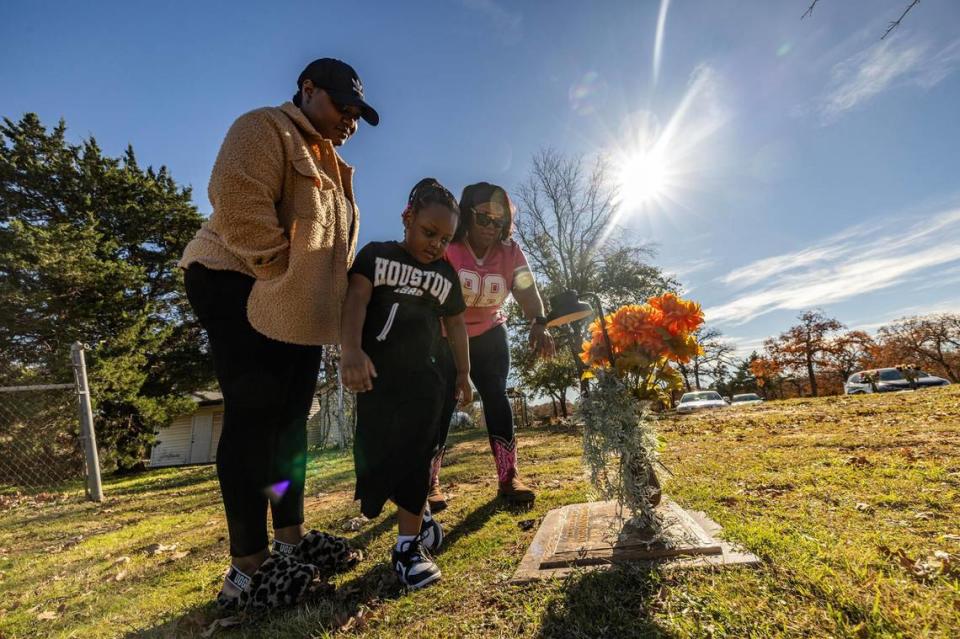
Derrick was gunned down in the parking lot of his apartment complex Feb. 6, 2020. According to Mackey, he was coming home from the movies with his girlfriend. Four men, including a 17-year-old, were charged in connection with his murder.
Even before Derrick’s murder, Mackey says she was no stranger to the impacts of gun violence. Her younger sister Shemeka Rodriguez was fatally shot in 2017, her father in 1989 and her uncle in 1980.
“It has affected my family tremendously,” Mackey said. “It’s like, I’m very, very traumatized, from how the gun violence has occurred ... in this community and this state.”
Shortly after Derrick’s death, Mackey helped her mother, Melinda Hamilton, found the nonprofit organization Mothers of Murdered Angels. Through MOMA they reach out to grieving families and raise awareness about gun violence.
Mackey said her work with MOMA has given her something positive to focus on after Derrick’s death.
“It gives me completion, you know, it helps me get through my grieving,” she said. “I can help others, I can ... talk to them. I can walk with them through it.”
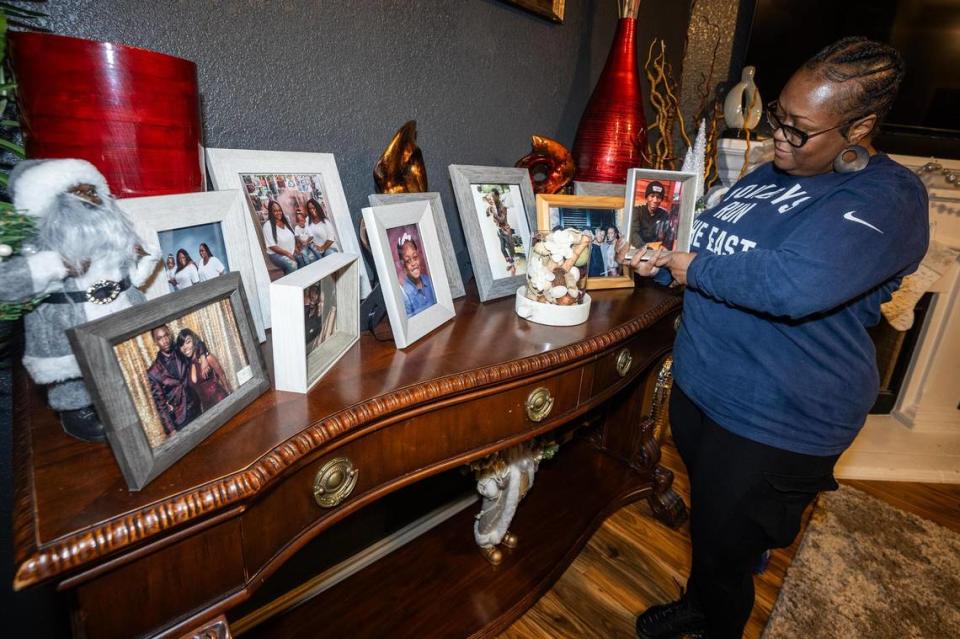
Gun violence statistics
LaWanda Saunders, a detective with the Fort Worth Police Department Gun Violence Unit since its creation in 2021, said those who commit gun violence crimes appear to be getting younger.
“It seems like the shooters that used to be the 19, 20 and 21-year-olds — sometimes now we’re getting more the 14, 13 and 12-year-olds,” she said.
According to Fort Worth police records, there were eight fatal shootings in 2023 in which a minor was a suspect. Five adolescents under the age of 18 were charged with killing someone with a firearm.
The numbers are down from recent years. There were 21 gun homicides in which a minor was a suspect in 2022 and 14 in 2021. Fort Worth police didn’t provide information on how many teens were charged in firearm homicides for those years.
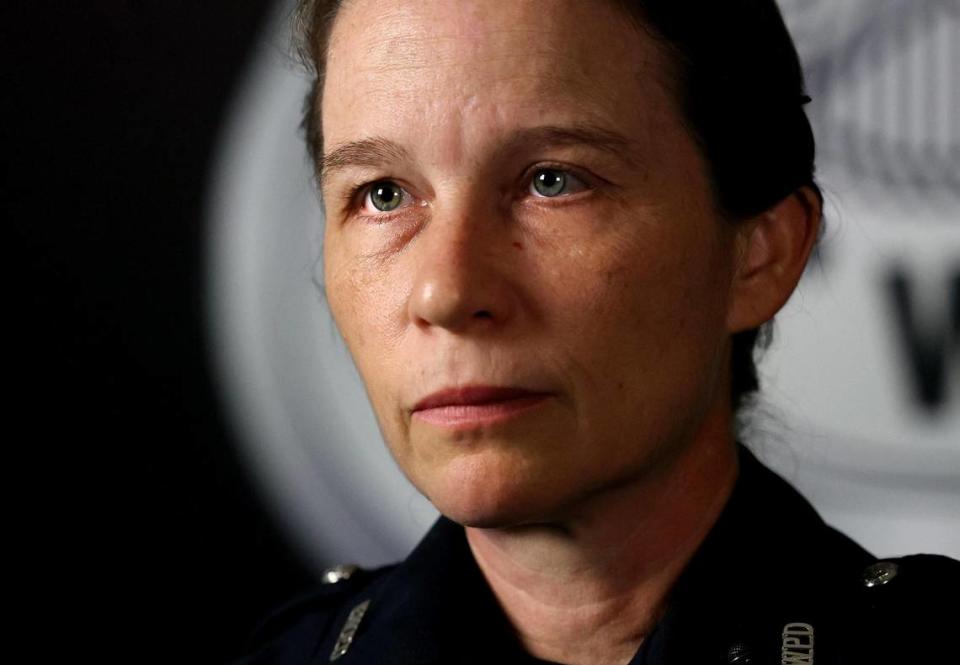
Teens also often become victims of gun violence, like Breck Jerod Williams Jr. Breck’s family described him as a mature, selfless kid with a loving nature. At 17, he already had plans for starting a career as a truck driver and dreams of making music professionally. Nearing high school graduation, he was looking for apartments so he could set out on his own.
That maturity is something his father, Breck Williams Sr., said made Breck’s parents so hopeful of a bright future for their son. He was exactly the kind of young man they hoped their parenting would lead him to be, and he was just as excited about his future as they were.
But now he won’t have a chance for that.
On Jan. 4, 2023, Breck was shot and killed along with 14-year-old Adrian Daniels. He was outside a house on Panay Way Drive in Fort Worth, a neighborhood where he had friends, when an 18-year-old shot the two boys, according to police.
Months later, the death of their son continued to cast a darkness in the lives of the Williams family, Williams Sr. told the Star-Telegram.
“We’re not OK. We’re not doing good,” he said. “We lost our boy. We’re not doing good, mentally.”
According to Fort Worth police records, 10 young people between the ages of 1 and 18 lost their lives in shootings in 2023. Three of the victims were 17, one was 16, one was 15, four were 14 and one was 12.
A total of 17 adolescents or children were killed in shootings in the city in 2022 and 14 in 2021, police records state.
In addition to Breck and Adrian, the names of teens who died in North Texas shootings in 2023 include 17-year-old Zechariah Trevino, 17-year-old Brad Gruver, 16-year-old Ja’Shawn Poirier, 15-year-old Xavier Hullaby and 14-year-old Le’Drevion Winfield.
Four 18-year-olds and seven 19-year-olds were also among the 72 homicide victims killed by guns in Fort Worth last year. They include two of the three victims killed at a July Fourth weekend gathering in the Como neighborhood. Police said that shooting was motivated by a gang-related argument.
Today's top stories:
→ Naked suspect beat delivery man to death with firewood, warrant says
→ Gas leak found outside 777 Main tower in downtown Fort Worth
→ Family copes with loss of man killed in arson fire
🚨Get free alerts when news breaks.
Contributing factors
What drives adolescents with their whole life ahead of them to commit acts of violence they could spend years paying for?
Paul Paulus, professor emeritus of psychology at the University of Texas at Arlington, said young men historically have a tendency toward violence and a need to retaliate when they feel threatened. According to Paulus, the proliferation of guns in the U.S. — and easy access to them — are the driving factors behind teen gun violence.
“America is back to a ‘Wild West’ culture with proliferation of guns in our society,” Paulus told the Star-Telegram in an email. “However, during the Wild West there were not AK-47s for one person to kill everyone in a saloon. The data are clear, countries that do not have lax control of guns have very low homicide rates.”
In 2020 and 2021, firearms were the leading cause of death for U.S. children and teens between the ages of 1 and 19, according to the Centers for Disease Control and Prevention. Homicides, suicides and accidental shootings were all taken into account in CDC research.
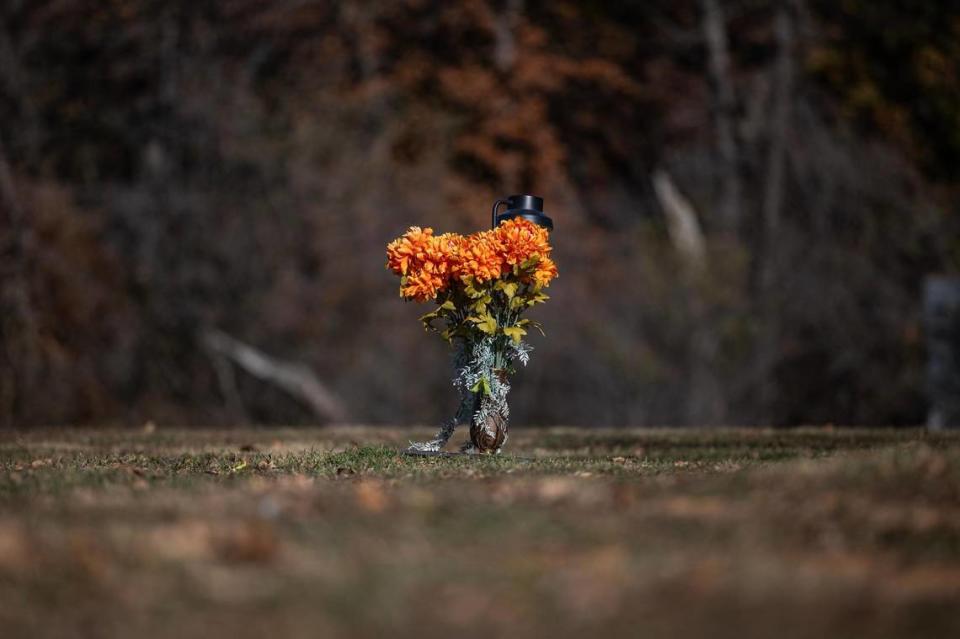
Prior to that time, unintentional injuries, including motor vehicle crashes and drowning, were the leading cause of death for young people in that age group, according to the CDC.
Saunders said she isn’t convinced guns themselves provoke violence so much as the mentality of the individual. She does see social media as a factor in exacerbating violence among young people.
“You can get instant fame, you can get instant recognition,” Saunders said. “Everybody wants their 15 minutes of fame, and if they do something crazy and wild and outlandish and it’s caught on film, then they’re going to be famous, and then they’ll get that respect that they’re looking for.”
Young people, according to Saunders, are influenced by peer pressure and the need for respect and acceptance. If those needs aren’t met at home, they’ll look for it somewhere else, she said.
Regarding attitudes about guns, Saunders said a gun makes young people think they look harder.
“If people leave their guns in a vehicle, and kids that don’t have anything better to do are walking down the street just trying door handles to see if a door is open and if someone happens to have a gun somewhere in the vehicle, that’s one way that they’re going to get it,” she said.
Other teens find guns at home or get them from friends or off the streets, she said.
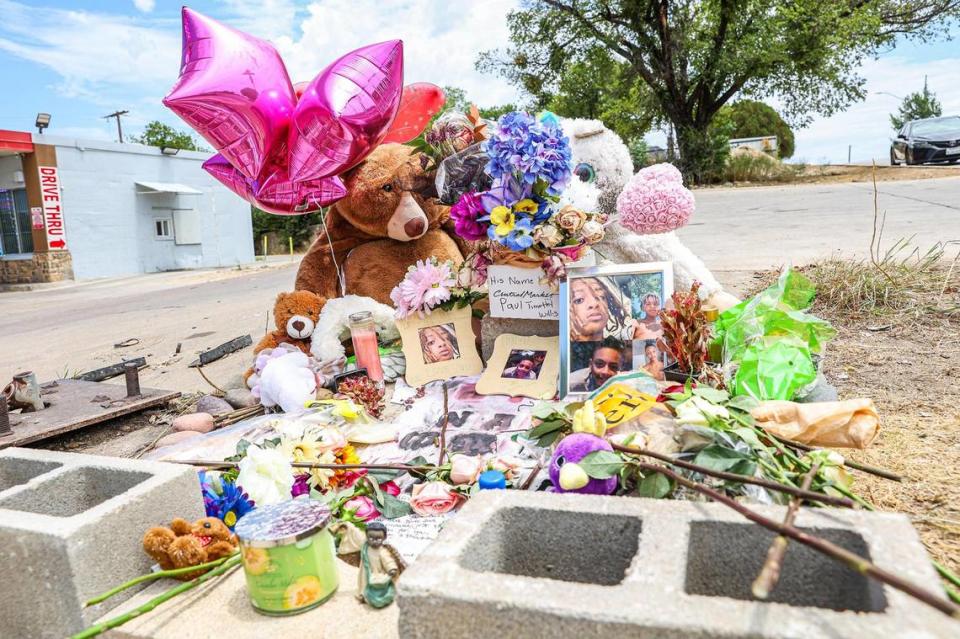
Saunders said she’s frequently asked by older shooting victims why young people are resorting to deadly forms of violence to resolve arguments.
“Many of them said, ‘I thought we were just gonna throw hands. I thought ... I was just gonna fight this guy, and then he pulled out a gun,’” Saunders said. “And then when I end up talking to ... the person who did the shooting, they say, ‘Did you look at the size of that guy? There was no way I was gonna fight him. I’d get beaten up.’ And so it was just easier to pull out a gun to settle the problem that way.”
A challenge gun violence detectives run into involving teen shootings is the “snitches get stitches” mentality, Saunders said. Older people are more willing to share what they know with authorities, but there’s a code of silence among teens.
“An eyewitness report can be the ‘make it or break it’ difference,” she said. “And if you have everybody that was there doesn’t want to talk, then unfortunately that makes it extremely hard for us to investigate.”
What the police and community are doing
Saunders said the Gun Violence Unit has made a difference in how police investigate shootings. Detectives immediately go to the scene of the shooting and interview witnesses.
Even though the unit only investigates non-fatal shootings — the Homicide Unit investigates fatal ones — Saunders said the Gun Violence Unit still helps prevent deadly shootings.
According to the detective, they’ve seen cases where something reported as a self-inflicted gunshot wound turned out to be someone planning a drive-by shooting who accidentally shot themselves first. The Gun Violence Unit’s goal is to stop fatal shootings before they happen and get the guns off the streets.
While Fort Worth police have noted in community forums and news conferences that initiatives to reduce gun violence in the city, especially among minors, have seen some effect, they say they can’t do it alone.
Community leaders have long run organizations focused on reducing gun violence in specific areas. The city announced last year that it was partnering with other local governments, community groups and United Way to focus resources and achieve a more concerted effort in the fight to reduce shootings. They’ve dubbed it the One Second Collaborative.
Police leaders have emphasized that even the One Second Collaborative won’t be able to find total success unless gun-owning parents take steps on their own to reduce the access their children have to firearms in the home.
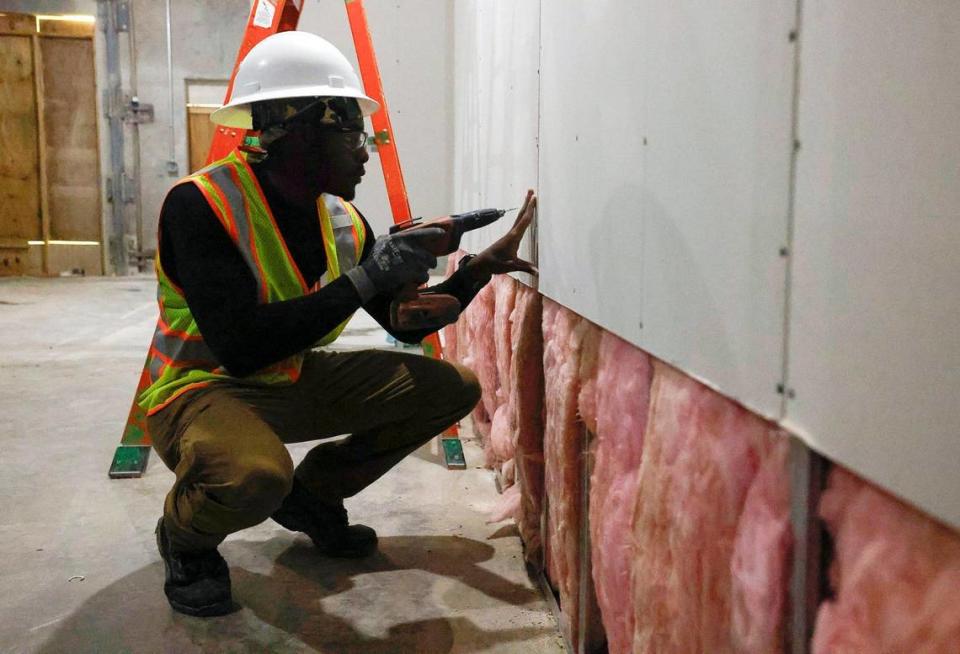
VIP FW, an organization working in Fort Worth communities that is receiving funding through the collaborative, provides mentorship for at-risk young men ages 12 to 29. Founded in 2019 and launched in 2020, VIP FW was created as a partnership between Fort Worth police and community members.
Keith Wooten told the Star-Telegram in 2022 that he and most of the mentors in the group were “venom” in their neighborhoods when they were young. Many of them are ex-gang members who are now working to prevent younger generations in Stop Six, Eastwood, Meadowbrook, Morningside, and the Hattie Street, Allen Street and Las Vegas Trail areas from following the same path.
Regina Williams, the executive vice president and chief impact officer at United Way of Tarrant County, which oversees the One Second Collaborative, said the program is focused on listening to the needs of communities affected by gun violence and then finding services they can provide to those communities.
By addressing a sense of hopelessness and the need for living wages, providing resources to parents, teachers and teens, and partnering with other local organizations working toward the same goal, the program hopes to “interrupt” gun violence in Fort Worth and Tarrant County, Williams said.
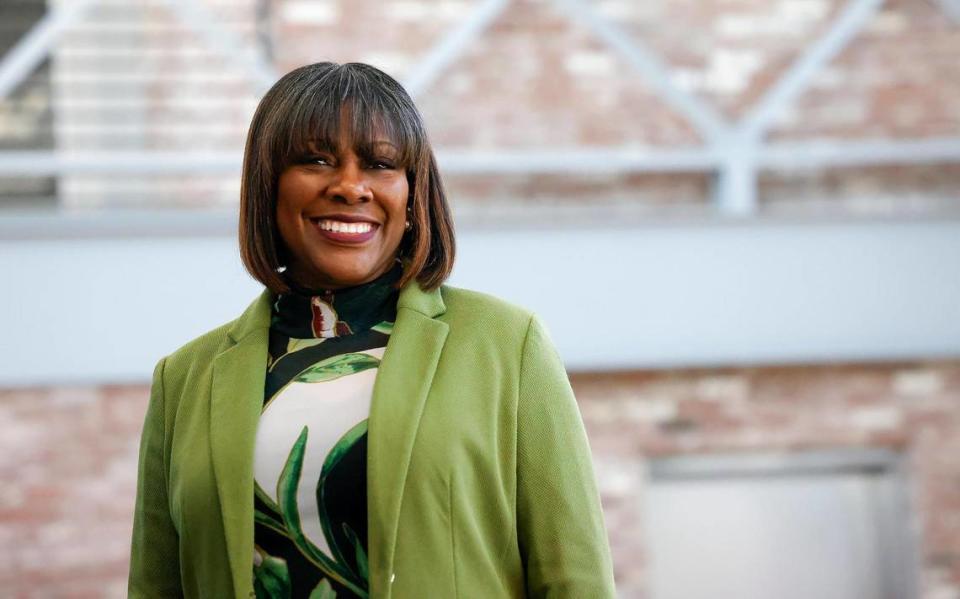
Williams said the project is not short-term. She’s already planning for at least 10 years of work, and while initial funding from the city and county isn’t meant to last that long, the program could receive more in the future.
The shootings are a public health crisis, she said. The violence is a symptom, and by identifying and treating the causes she believes One Second Collaborative and its partner organizations will be able to create a positive impact.
Organizations the program has partnered with — like VIP Fort Worth and Mothers of Murdered Angels, the program founded by Mackey’s mother, Melinda Hamilton — receive grant funding and coordination opportunities to increase the impact of their work.
Another organization partnering with the One Second Collaborative is Building Pathways. The program brings in at-risk youth and offers hands-on experience in construction, giving young people a chance to learn a trade. It also gives them an outlet to actively work and create something, which can have positive impacts on mental health and self esteem.
It’s the work of these organizations, along with committees made up of youth and community members, that will help guide the One Second Collaborative. Feedback from the committees could also help tackle the lack of trust felt between communities — especially communities of color — and police, or provide resources to assist with food security, education and healthcare, Williams said.
The program will be able to make recommendations to city, county and law enforcement leaders, advocate for changes to address violence and adapt new approaches based on the evolving needs of the communities experiencing that violence.
Solutions
Mackey said she wants to see stricter gun control laws. She also believes preventing gun violence starts at home, and a lot of kids are being raised in broken homes where there is no structure or sense of direction.
“That’s what we need these days, you know, as parents, we need to set a good example in our children’s lives,” Mackey said.
Saunders, the Gun Violence Unit detective, agrees.
“They need structure, and they need adults to show them the right way,” Saunders said. “To teach them to respect human life, to respect their own lives and how to live. And when they don’t have that, then that chaos can really lead to some tragedy.”
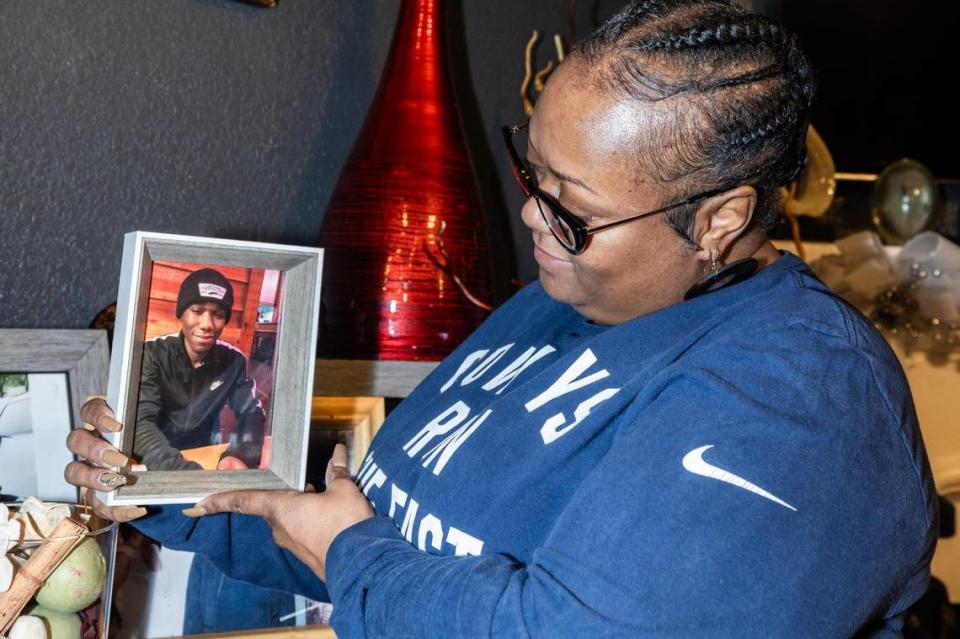
The biggest way to help young people is “just being involved,” Saunders says.
“Parents, I can’t overemphasize it,” Saunders said. “And being with your kids and listening to them. And also I know some kids don’t have the privilege of having two parents at home. So if you are in a position where you can be a mentor to these kids, if you’re in a schooling position or some other position, reach out to the kids that are in your area.”
Mackey visits her son’s grave every two weeks, she said. The fact that everyone police say was involved in the shooting has been arrested has done little to bring closure.
“I still have a son that I’m not going to ever see in my life again, so there’s not going to be any closure,” she said. “But I can only say that ... I forgive them because God said in his Word that we have to forgive, but I cannot ever forget what has happened to my baby.”
According to Mackey, prayer and her relationship with God have helped her through her grief. Now she’s focusing on the blessings she’s been given — her daughter, two granddaughters and the MOMA organization.
“I just pray and hope that we can touch a lot of young individuals and get them to turn away from even ... going in that (wrong) direction,,” Mackey said. “And I’m not saying turn away from ... doing negative things. I want to turn them into doing positive. I pray and hope that our program can touch young individuals as a whole and try to get them to do what’s right.”

